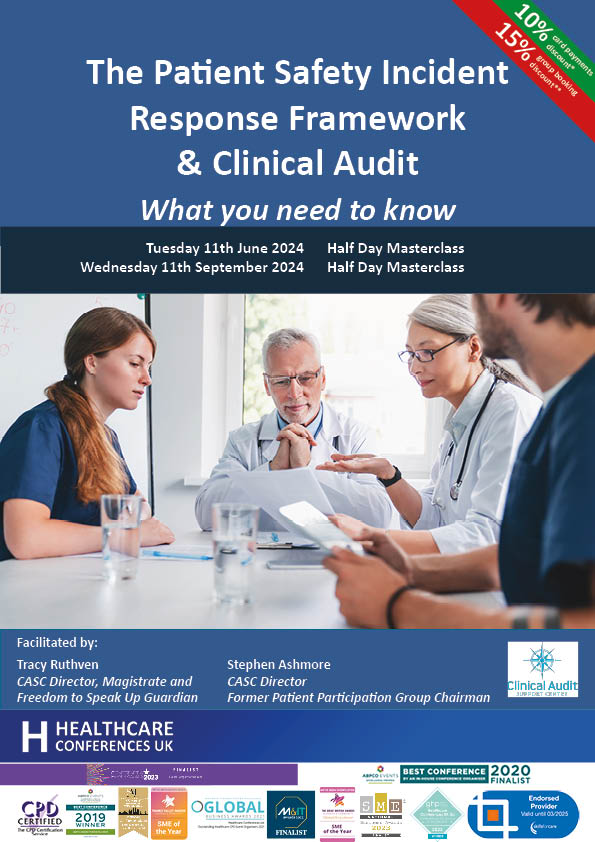The Patient Safety Incident Response Framework (PSIRF) arguably represents the most significant change to investigating and managing patient safety incidents in the history of the NHS. To embed PSIRF effectively within organisations, healthcare teams need to understand and utilise a range of new techniques and disciplines. Clinical audit is an established quality improvement methodology that is often overlooked by patient safety teams, but will play an increasingly important role in ensuring that PSIRF fully delivers its stated objectives.
CQC reports often highlight the importance of clinical audit as a measurement and assurance tool that can raise red flags if used appropriately. Indeed, both the Ockenden and Kirkup reports highlighted the importance of clinical audit in identifying and quantifying substandard care.
While SEIPS, After Action Reviews, more in-depth interviewing techniques, etc. are all receiving much fanfare in relation to PSIRF, the importance of clinical audit needs to be better understood. This short course will explain how organisations who use clinical audit effectively will increase patient safety and better understand why incidents take place. We will look at the key role of audit in understanding work as imagined and works as done and show why national audits can assist with creating patient safety plans. Change analysis and the effective implementation of safety actions are keys to PSIRF delivery and clinical audit will assist in the delivery of both. We will also demonstrate the important, but often under-appreciated role, clinical audit staff will have in the successful delivery of PSIRF.
Key Learning Outcomes:
Why clinical audit is an integral element of PSIRF
Why clinical audit staff have a vital role to play in PSIRF
How clinical audit data can help raise red flags and spot risks
Using clinical audit to better understand your incidents
Ensuring your safety actions are working
Using audit to assess your patient safety incident investigations
Facilitators:
Stephen and Tracy have worked in clinical audit since the mid-1990s and are widely published. They authored the methodology sections in the Principles of Best Practice in Clinical Audit book, often referred to as the clinical audit bible. Stephen and Tracy help a wide range of healthcare teams with their clinical audit work, ensuring that best practice is followed and that clinical audits meet expectations. Stephen and Tracy also teach a wide range of patient safety investigation techniques. Previously, Tracy has been employed as a Freedom to Speak Up Guardian.
Who Should Attend: Patient safety staff, risk management professionals, patient safety partners, patient safety investigators, quality improvement professionals, clinical audit professionals, clinical staff and healthcare managers.












